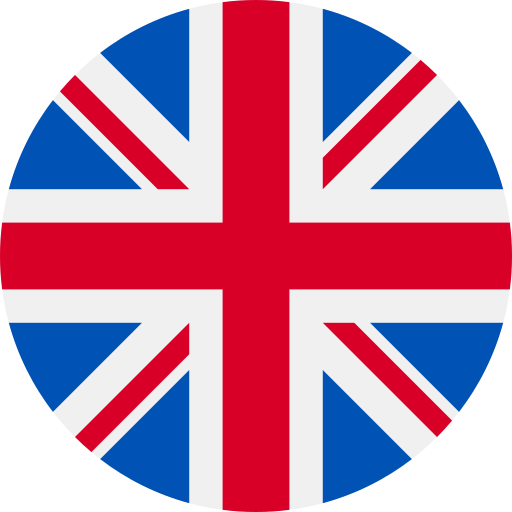
The travel and hospitality industry is experiencing a change that includes using advanced tools to fulfill customer demand. Businesses are different from each other and expect tailored services, and this can be satisfied by outsourcing to experts like X-Byte who have expertise in advanced technologies. Two emerging technologies prominent in this field are artificial intelligence (AI) and web scraping. It enables businesses to gather, analyze, and address real-time travel data, revolutionizing the industry. Websites such as Expedia and Booking.com are leaders who provide innovative solutions. They apply the advent of AI in developing features such as ‘mostly liked,’ which allows each travel user to discover travel deals unique to them thus making travel discovery more gratifying.
Artificial intelligence (AI) is transforming the travel market and affecting extensive business processes. Currently, almost all travel companies integrate AI tools into their internal operations to make them more efficient and personalized as per the business setup. AI assists travel businesses in making travel more accessible and more comfortable for each customer by providing them with information they consider suitable for that specific customer.
| ● The global scraping software market was valued at USD 5.06 billion in 2023 and is expected to grow at a compound annual growth rate (CAGR) of 43.3% to reach USD 143.99 billion by 2032.
● In 2023, the travel and tourism industry contributed 9.9 trillion dollars to the world economy. In 2024, this amount was projected to increase to an estimated 11.1 trillion US dollars. |
How is AI Transforming the Travel Industry?
AI and machine learning algorithms make the automation of data identification and extraction from web pages possible. These algorithms can recognize patterns, structures, and relevant data on websites, reducing the need for manual configuration. Furthermore, machine-learning models improve data accuracy by making modifications and corrections in real-time while the data is being scraped. These models guarantee the dependability of scraped data by detecting and fixing faults and adjusting to changes in website structure. Since JavaScript frequently loads dynamic material on modern websites, AI-powered web scraping solutions effectively interact with and retrieve data from these dynamic elements, guaranteeing that all relevant information is captured. As the importance of data privacy grew, web scraping technologies prioritized improving security features to ensure data protection and compliance with regulatory requirements.
In other words, using artificial intelligence in the travel industry will reshape companies’ models and how they interact with clients, ultimately improving clients’ experiences of travel services.
Use Cases Data Scraping and AI in the Travel Industry

Data scraping and AI are transforming the travel industry by enabling businesses to understand customer preferences better, streamline operations, offer personalized experiences, and optimize premium services such as business class flights.
1. Dynamic Pricing and Revenue Management
Dynamic pricing, therefore, is the process of changing the price of a product depending on market factors such as demand, competitors’ price offers, or the time of the year. Pricing information is collected from competitors’ websites through web scraping, allowing firms to view the current competitor pricing. This way, they can pinpoint how to adjust their price levels to keep up with the rest of the market.
● Benefits for Businesses:
When prices change, a company generates high total revenue by setting high prices when demand is high and keeping them reasonable when demand is low. Keeping prices flexible to attract more customers without sacrificing potential earnings can be beneficial.
● Industries That Use This:
Business enterprises that are cyclical, such as travel, e-commerce, and hotels, benefit greatly from web scraping. However, web scraping can even help core industries such as healthcare or real estate, where pricing has to be dynamic with demand and set the right price at the right time.
2. Improved Collection of Leads and Marketing Information
Leads are the prospects that a business looks for, and this activity is known as lead generation. Marketing knowledge enables organizations to know what these customers need. Web scraping can benefit both of these since it allows you to get relevant information from the web. Companies can use data scraping from social media, reviews, and forums to know the world’s interest in a particular product, topics of interest, and the products they might need. This aids in identifying whom to target in organizations to develop appealing marketing communication messages.
● Benefits for Businesses:
With such information, firms can design highly focused marketing communication, which means less advertising costs and more targeted consumers. It also informs businesses about popular items to enable them to beat their counterparts in the market.
● Industries That Use This:
It has become beneficial to retail, e-commerce, and B2B companies. Specifically, any sector that requires customer needs analysis, such as IT or medical, can employ web scraping to ensure proper product delivery.
3. Consumer Perception and Brand Image
Over time, the customers’ perception of their service providers influences their reputation, hence the brand. By web scraping, businesses can monitor people’s opinions through social media, review sites, and forums to know what people say about their brand or competition. They can always look into this insight to handle customers’ needs or complaints. Advanced web scraping tools applied in businesses involve scraping data on prices, customers’ feedback, and social media comments. It enables them to predict the tendencies and provide a prompt reply to shifts in the principle of public opinion.
Benefits for Businesses:
Web scraping helps companies assess their image among the population. It assists them in comprehending market position, competition techniques, and customer preference, which are necessary to maintain a good brand image and achieve customer loyalty.
Industries That Use This:
Those industries that deal with reputation, such as fashion, beauty, electronics, hospitality, and finance, benefit most from this strategy. For instance, a hotel can track the reviews to enhance their service delivery, and beauty brands can use the same to follow the feedback on their new products. Using web scraping for sentiment analysis in healthcare, automotive, and entertainment companies can make it easier to remain linked to the sentiments of the customers and the way they can build a brand for a loyal following in today’s world.
4. SEO Monitoring and Content Strategy
Competitive analysis for SEO monitoring and content strategy implies using web scraping to analyze a competitor’s content and SEO. Organizations can determine which keywords will yield the best results, analyze ongoing link-building strategies, and learn about the current and potential content in the digital platforms that might influence their search engine rankings. The searched results and competitor content can be gathered through scraping tools that firms employ. They dissect the information and establish the best keywords and backlinks, leading to a better content approach. Additionally, a guest posting service can be utilized to identify opportunities for building quality backlinks by targeting relevant platforms where competitors are gaining traction.
● Benefits for Businesses:
This leads to better and more efficient determination of the content a corporation needs to provide on its website to achieve better search engine rankings. Exploring webpages reveals frequent keywords and effective SEO strategies and helps businesses generate content that helps capture the audience’s attention.
● Industries That Use This:
The approach helps industries heavily dependent on digital content, such as media, publishing, and e-commerce. Marketing and advertising firms also utilize these suggestions to improve their SEO strategies and make a broader market appeal. Web scraping for SEO is applied in the technological sectors as well as the healthcare and finance sectors to ensure that the online portfolio of a given company comes in line with the search behavior of a given user. Hence, through web scraping, such businesses can outdo their competitors through SEO, which results from presenting audiences and search engines with content that appeals to them and gives them the high rankings they desire.
5. Product and Service Benchmarking
Product and service benchmarking entails comparing your products or services against competitors. With the help of web scraping, firms obtain information concerning their competitors’ goods and services, prices, customer reviews, and market trends, thus determining their positions in the marketplace. The pricing factors, the major elements the businesses use, are gathered by web scraping instruments. They then use this data to advise product and service changes, making them competitive.
● Benefits for Businesses:
With this information, companies can know what competitors are doing right and where they are going wrong. They can improve the choice specifics to fit customer demand and create new functions for products with gaps.
● Industries That Use This:
This approach is most effective in specific industries, including technology and consumer goods, electronics, automobiles, and retail. Therefore, these industries can keep updating their products and customer experiences based on knowledge of competitor offerings available in the market.
6. Supply Chain and Vendor Tracking
Supply chain and vendor monitoring apply web scraping to monitor important suppliers’ data, price, and demand. This makes it easy for businesses to oversee supplier dependability, the price of materials, and any market fluctuations that may be of concern in ensuring supply chain integrity. Web scraping helps companies compile data regarding their vendors and the market on a recurrent basis. They employ it to evaluate the suppliers’ credibility and to adapt the procurement plan and approach, maintaining a flexible supply chain.
● Benefits for Businesses:
This information enables firms to make improved vendor decisions, negotiate favorably, and rapidly address disruptions. This results in a better supply chain and control of such occurrences, which reduces costs.
● Industries That Use:
This approach will be helpful for the manufacturing, retailing, and logistics industries with several sub-suppliers in their supply chains. These industries use real-time data to remain alert to market changes and guarantee an efficient supply chain.
7. Business and Regulatory Data Collection
Compliance and regulatory data are gathered through web scraping to detect changes in industry laws and regulations. This assists in keeping the business informed of new legalities that need to be complied with and guarantees compliance with the law. For this purpose, companies establish automated structures that collect data on regulations on government websites and other relevant sources. This means they can easily incorporate what is legally acceptable and ensure compliance with their functions.
● Benefits for Businesses:
Using web scraping to monitor compliance, a firm can easily keep up to date with legal changes, reducing the possibility of breaking the law by a wide margin. It also assists organizations in sustaining compliance and facilitates organizational integrity.
● Industries That Use:
Some sectors that may enjoy this style are finance, health, and the drug industries. They claim that it enables them to meet high levels of compliance while minimizing litigation costs.
Conclusion
With the changing pace of the travel and hospitality industry, businesses must adapt and use automated web scraping tools and AI. These advanced technologies lead to real-time information and deep intelligence needed for decisions on efficient functioning, improvements in customer satisfaction, and thus, growth. Whether you are a huge international hotel company, an OTA, or a domestic travel agency, the key to competitiveness is data – or, as it turns out, data is the key to competitiveness with the help of Xbyte’s web scrapers. We provide tailored services to assist you in identifying that specific travel industry data relevant to your business.
Are you willing to discover the powers of AI and web scraping for your travel and hospitality business? Call X-Byte Enterprise Crawling today to learn how we can help you obtain more information about your company and its future.













